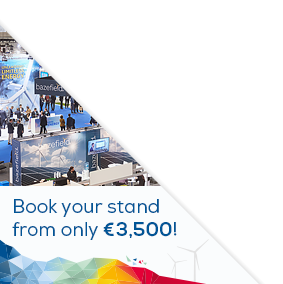Posters
Siblings:
ProceedingsProgrammeProceedingsSpeakersPostersContent PartnersElectrification StageMarkets TheatreR&I ActivitiesStudent DayProgramme Committee & abstracts reviewersPresenters dashboardCome meet the poster presenters to ask them questions and discuss their work
We would like to invite you to come and see the posters at our upcoming conference. The posters will showcase a diverse range of research topics and provide an opportunity for delegates to engage with the authors and learn more about their work. Whether you are a seasoned researcher or simply curious about the latest developments in your field, we believe that the posters will offer something of interest to everyone. So please, join us at the conference and take advantage of this opportunity to learn and engage with your peers in the academic community. We look forward to seeing you there!

PO124: The hydrogen wind turbine: a wind turbine optimised for hydrogen production
Andreas Bechmann, Senior Scientist, DTU Wind and Energy Systems
Abstract
The infrastructure cost and the constraints set by grid codes set the boundary condition for the design of off-shore wind turbines. Changing the energy transportation to hydrogen opens up new wind turbine designs, but the electrolysers' dynamics should be considered. We explore the design of an off-shore wind turbine (WT) connected to an alkaline electrolyser to produce hydrogen, named the Hydrogen Wind Turbine (HWT). On the HWT, the electrolysis stack is integrated directly with the WT generator, and the system operates in off-grid/island mode. In the absence of the grid connection, a number of constraints set by the grid codes can be removed, but the burden to provide electricity for hydrogen production lies solely with the wind turbine. Thus, it is necessary to determine how the design parameters affect the dynamic interactions between the WT and the electrolysis system. This work first evaluates how the size of the alkaline electrolysis stack impacts the levelised cost of hydrogen (LCOH) for a reference wind turbine. Next, a parametric study of the main wind turbine design parameters is conducted to investigate the potential of reducing LCOH by optimising the wind turbine design. Finally, the dynamic simulations are used to evaluate how the variability of the wind affects H2 production.







